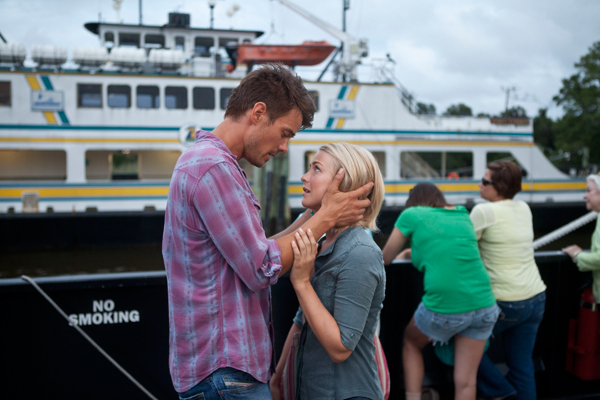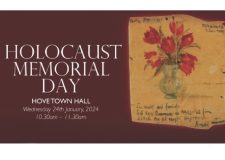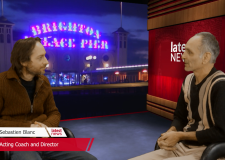Interview: Nicholas Sparks

Nicolas Sparks, author of romantic thriller ‘Safe Haven’, talks to Holly Cozens about his writing process, romance writer status and producing in Hollywood
So this is Sparks, but not as we know it?
“Not me, personally. That really came from when I set out to write any novel I try to make it different from what I have done before while still retaining some familiar thread. So for this one I’d start with a different theme of love and danger so you start with that and think what’s the best kind of dangerous element.
“From this little seed, an entire story eventually sprouted it was just a choice to vary the theme. Watching what to do is to make a different story you can vary the age of the characters, it might mean you might have a novel with more mystery and another you might have one with more secrets then another. This one just had more danger than another.”
How much do you think about the film that’s going to made of the novel when you’re writing?
“You have it very much right and wrong. When I’m in the conception stage of the novel I like to, and I have to be very clear on the story before I start writing. I have learnt this about me because I have actually started novels before when I’m not clear on the story and throw them away halfway through. I don’t have time to waste any more I’ve got so many things going on so I like to be very clear on the story but when I’m conceiving a novel I very much take Hollywood in mind.
“You are looking for images that will translate both to film and you’re looking for stories that will also feel fresh within the context of film. When you think of what this is I would never write a love story set on the Titanic. There’s never been a novel about it. Because of the big film it wouldn’t be original for film so I can’t write that one.
“When you look for originality you look to see that there will be an foreseeable film and do nothing then once I have the story in my head I think ‘okay can it work for film?’ and then from the moment I start writing to the moment I finish it’s all about the novel. It’s only about the novel because I can’t guarantee that it’s going to get made into a film. It seems maybe to you that I can but I really can’t say that when my novels go out they go to Hollywood. The same as everyone else’s, they say yes or no.”
Do you write with an actor or actress in mind?
“Occasionally but very rare. I knew for instance that Miley Cyrus would be in The Last Song because once I conceived the story I knew that Disney was interested in buying the next novel as a vehicle for Miley so I started writing a story about a 17- year-old girl who looked exactly like Miley. As I’m conceiving the story and then of course all the way through I was writing the screenplay before I wrote the novel. So for The Last Song I knew it would be Miley but I had no idea that Liam Hemsworth would be playing Will and, as for Safe Haven, I had no one in mind. For The Notebook I had someone in mind and it ended up not being that person.”
Can you tell us who that was?
“Originally Lauren Holly but then it took so long and she wasn’t the right age but that’s how that worked. Picket Fences was the show and I thought she would be really good but you know how that worked out. For the novel that I just wrote that’s being auctioned in Hollywood today I have an actress in mind so we will see if that person comes through and I can’t tell you that! (laughs). Next year if you ask, and it’s that person then I will say yes.”
“You draw from different people that you have known in your life who have moved passed these kind of circumstances.”
I read that you take inspiration from your own family and friends in your novels whereas this one was fiction. Did you do any other research or preparation for this?
“No, I think people are pretty clear when you talk about domestic abuse. Talking about it I think most people are aware that everybody’s particular situation is as unique as the people within it and so for me the most important thing was to get the voices right to make the characters, both her and him, feel as authentic as possible in that own unique world.
“And really this is a novel about second chances and it’s a film about second chances. It is about putting the past behind you, trying to put the past behind you and then as so often happens the past catches up with you, comes roaring back in your life and that’s what this is about.
“Would I do research on the kind of injuries? No, I think we all know that can very dramatically differ. We have all read numerous articles about this so I think what you’re looking for is what type of person would it have been to escape from this and who are they. You draw from different people that you have known in your life who have moved passed these kind of circumstances.”
So you write about what you know?
“Well you write about what you know and you’d write about what you don’t. You write about what you can make authentic. You have to be able to write honest characters and they have to bring the authenticity and feel very real to you and that’s the most important thing. And the best way to do that is to write something that you know. If I am creating Katie I would say, look I have never been an abused woman and actually no one in my family has either, so how do you create that? Well, everyone I know including myself has elements of their past that they want to put behind them. And they have had to face moments of choice and may have had to show courage so that is what you are trying to capture within the context of that particular character.”
When did you become aware that your genre is as big as it has become? Is there a point where it becomes like a brand?
“I think there is a case that could be made that if you say a ‘Nicholas Sparks film’ you kind of know what you’re going to get. I think you’d all know that it’s North Carolina, add a coast, a canoe, maybe a thunderstorm, add some secrets in there a couple of good-looking people, add someone sanding, a boat of course, we all know you can conjure it up. So I think there is a certain element of that.
“So it is kind of like a brand, a brand is a promise so you are going to get all of these things and yet the other part of the promise that I like is that you are also going to get the quality story. You can’t read The Notebook and then Safe Haven and feel that they are the same story and that they are alike in any way at all except that they are in North Carolina, there are couples and canoes etc. They are certainly promises that I intend to keep; it goes more towards quality, timelessness and originality plus some of these familiar image threads that you might expect from me.”
How has it been to become more involved from the movie perspective, being a producer. Does it give you more control?
“Control is a relative term. They are entirely different industries, first it’s an entirely different medium. A novel is a story told with words and the movie is a story told with pictures. It’s two entirely different things so you have to start with that knowledge. Novels are very individual whereas the film is a very collaborative process so I understand that too.
“When I work with any studio and I have from the beginning I have a couple of rules. Number one, retain the spirit and the intent of the characters’ story, that’s a pretty broad thing, like for instance, let’s not make Noah a raging alcoholic because we think it will soup up and make the film that more edgy. No, just retain the spirit and intent of the characters.
“The second rule is make the best film you possibly can as it is a very different medium. So some films have been very close to the novel while others have verged a little bit further, the general rule is they are fairly true to the stories. That film is collaborative and control is a relative term, you know the studio has executives that are associated with the project and they are a voice in the room.
The director, sometimes the actors – Kevin Costner was certainly big enough that he was a voice – and the other producers, so I certainly am and have been all along one of those voices. And you have to realise that you can put your foot down at any one point in time but remember it is a collaborative process. The other part of me is knowledgeable enough to understand that I have to make the novels feel as different as I possibly can with familiar threads.
“Ideally what would happen is that you could go and watch Safe Haven and really enjoy it and then on the telly later The Notebook is on and you can watch that too and enjoy that as well and it is an entirely different film.”
Do you feel happy working with Lasse Hallstrom again, having worked with him on Dear John?
Oh yeah, he’s great, the second time around you know what to expect. And really what we were looking for here it is to draw a lot of emotional depth from this. Virtually every scene you can see he had to fully develop a love story and fully develop a thriller. And if you’re developing both you only have half the time for both so you had to make the most of each and every scene in the film and you’re looking for a director who can really draw that out. And Lasse could do that.”
Would you to have a go at directing?
“Absolutely not. Directing is an art and a skill and I certainly think that skill takes time to develop and I have other things that I’m happy producing.”
Can you say that you always happy to see the final result?
“So far, yeah. I have been very fortunate in that.”
Do you have a personal favourite from all your films of all the stories?
“You know, the one most likely to become a classic so far is The Notebook. Well, at least in the United States, it’s on all the time! The one we watch most frequently in our house is A Walk to Remember because I have little children, that’s the one that is most appropriate one for kids so I don’t really have a favourite.”
Safe Haven is in cinemas now.





















